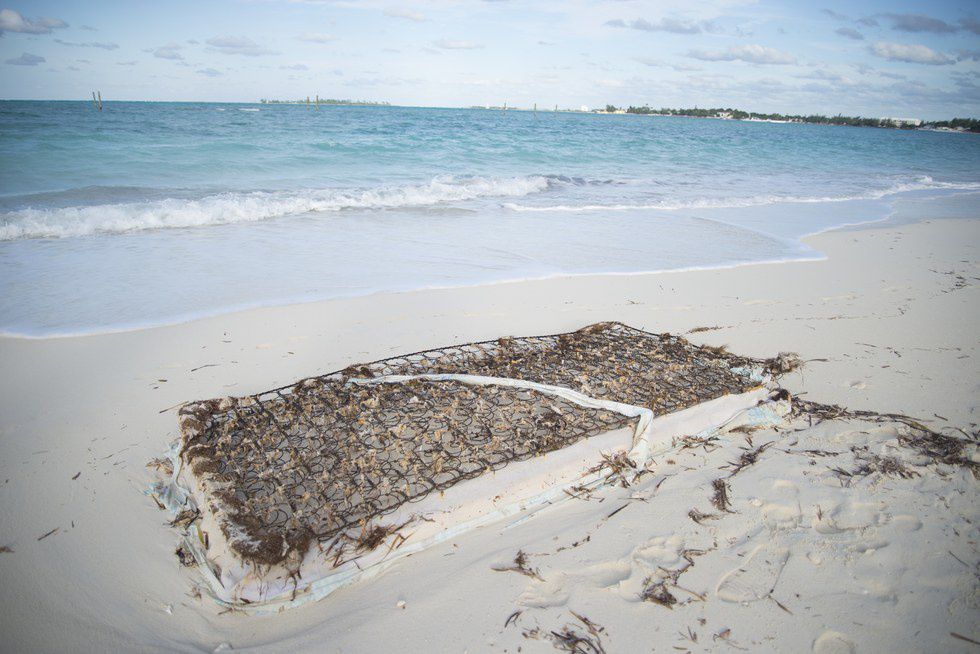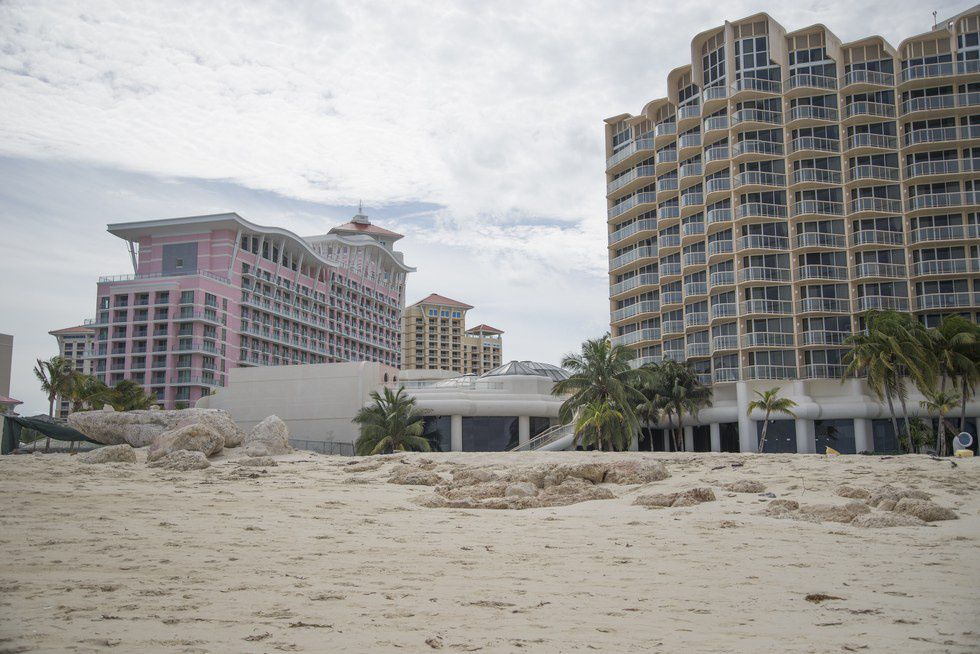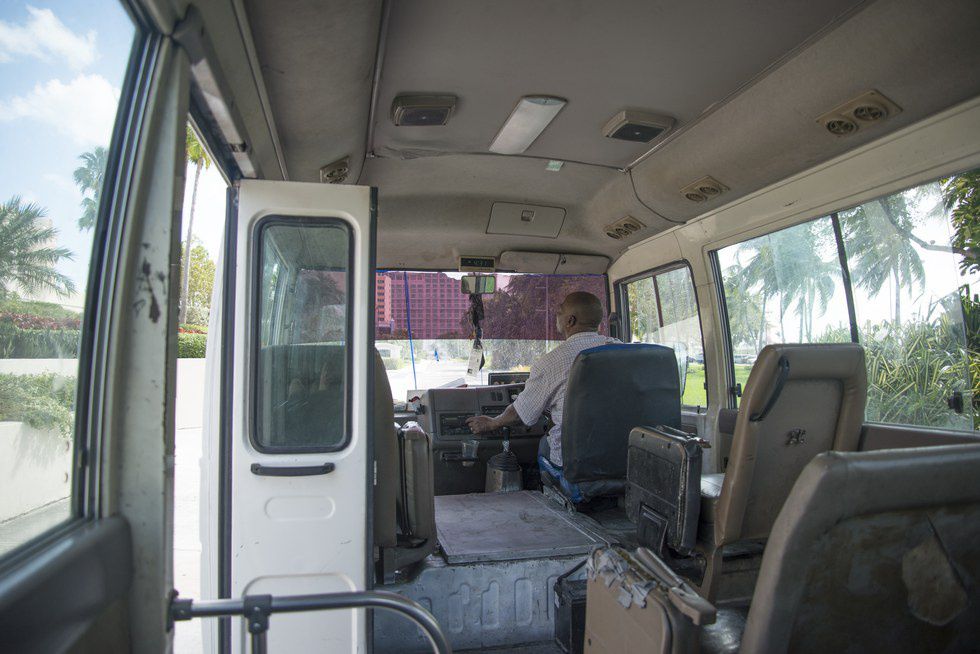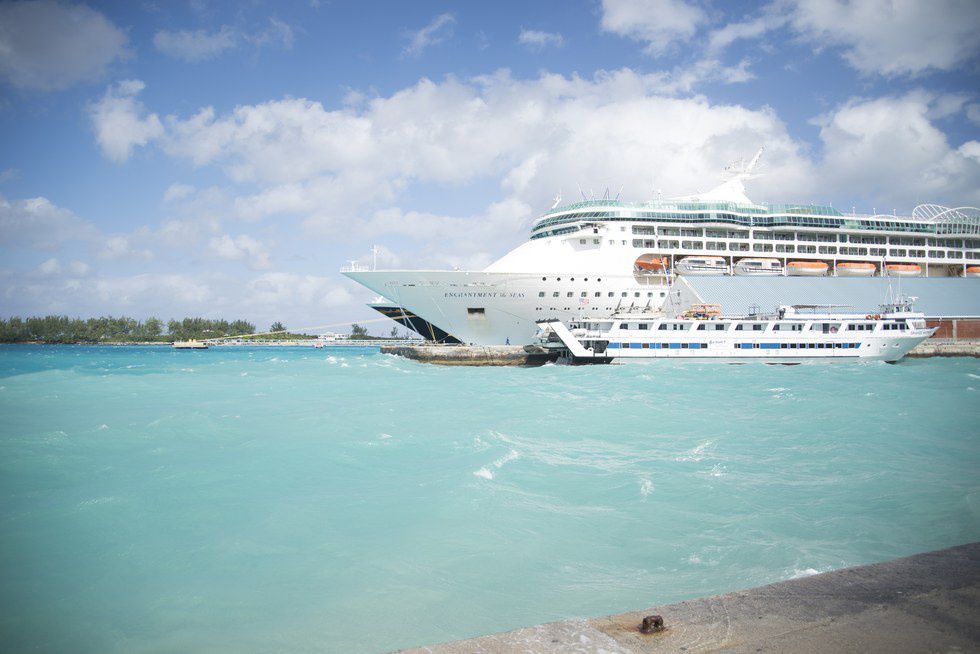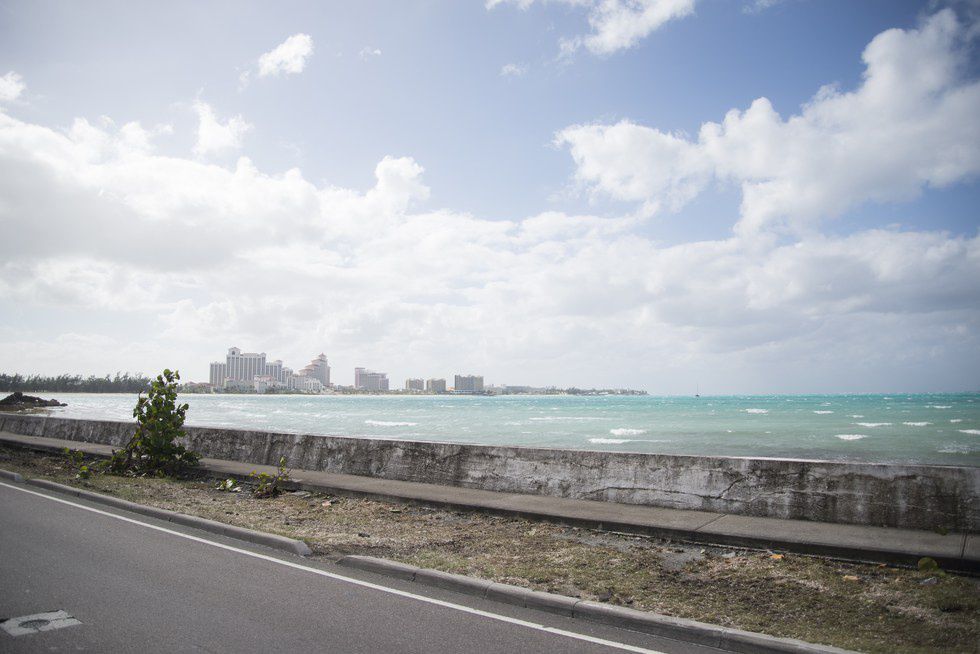Last January, a girl friend and I decided to take a spontaneous trip to the Bahamas. We were sick of freezing in New England, dying to scratch our travel itch, and desperately needed some beach time. Neither of us had ever been to the Bahamas – but from all the photos we had seen and stories we had heard, it seemed like a perfect destination for a warm beach getaway.
We booked a five day vacation through CheapCaribbean, and stayed at Melia – an all-inclusive resort in Nassau. A couple weeks later, we were jetting off to embark on our tropical vacation.
But it turns out the Bahamas I had imagined in my head was not the Bahamas that I ended up at. The resort was plenty nice enough – and was definitely worth its cost. If there’s anything I’ll rave about from this trip, it’s the abundance of delicious food. Our resort was beachfront on Cable Beach – supposedly one of the best beaches in the Bahamas. But if Cable Beach is one of the tropical destination’s top-rated beaches, I’d hate to see the beaches that aren’t top-rated.
My friend and I spent much of that week walking up and down the stretch of beach, and each time, we discovered more and more trash. I don’t just mean a soda can or two – we found large, cumbersome and extremely dangerous objects. Among the most notable were a rotted mattress and a rusty knife.
Our friendly, chatty cab driver that brought us from the airport to the hotel informed us that March is their busiest season. Because most college spring breaks fall some time in March, that makes sense. Being there in January, my friend and I were there during somewhat of a lull period. The beach was by no means packed – in fact, there were very few people there at all. Maybe the beach would have been cleaned up for the coming busy season, but somehow, I doubt it. I can't even imagine the immensity of the severe impact that this kind of trash has on the abundance of aquatic life that the Bahamas boasts about to attract snorkelers and scuba divers. Fish, sea turtles and sharks can be killed by simply getting entangled in netting - so imagine the damage that a knife or metal mattress springs could do.
Much of the beach had protruding slabs of concrete from the foundations of the dozens of resorts planted along it. An abandoned, broken down resort was actually Melia’s closest neighbor.
Later in the week, we took the bus into the actual city of Nassau – a common port for cruise ships. I should mention that I’m impressed that the bus even ran – let alone made a regular trip to and from the city. Duct tape seemed to be the chosen method of fixing anything broken on the vehicle.
There is a large open market in Nassau, with dozens of merchants desperately trying to sell any kind of knick-knack or memento to tourists. Apart from the market, there are a few streets lined with expensive, luxurious shops – Louis Vuitton, Rolex, and other similar stores that obviously serve the sole purpose of catering to cruise ship passengers, and not the native people of the Bahamas.
After becoming bored of browsing through those streets, my friend and I decided to venture outside the touristy center of the city. We got halfway down a single deserted street before we quickly changed our minds and turned around. Before we had embarked on our vacation, my ultra-cautious mother made a point of asserting that Nassau is actually a pretty dangerous place with a high crime rate. Step outside the shopping center of the city, and you’ll probably start to really feel that, like we did.
All in all – the water was beautiful, the weather was warm and the food was good. But I honestly don’t know how so many tourists can still flock to the Bahamas every year, when it has fallen into such a state of disrepair. The picturesque environment that attracts so many visitors seems to be seriously threatened by the heavy tourist market. In fact, the islanders don’t seem to have much time to pay attention to the environment or the well-being of their own home at all, because all energy is put into keeping tourists happy. Many homes, parks, and entire communities are heavily dilapidated.
The economy seems to stand solely on the legs of tourism – the native people seem to have very little options for vocation other than working in one of the hundreds of resorts, peddling trinkets in the market, serving in restaurants or driving public transport. It saddened my heart to see the beautiful sandy shores cluttered with trash and overrun with gaudy resorts. I was shocked to discover that many of the native people suffer from poverty. They have to live their lives watching and catering to foreigners that filter in and out of their home. I understand that ecotourism is the backbone for many places – especially tropical ones. But the “eco” in ecotourism in the Bahamas really seems to be suffering.




